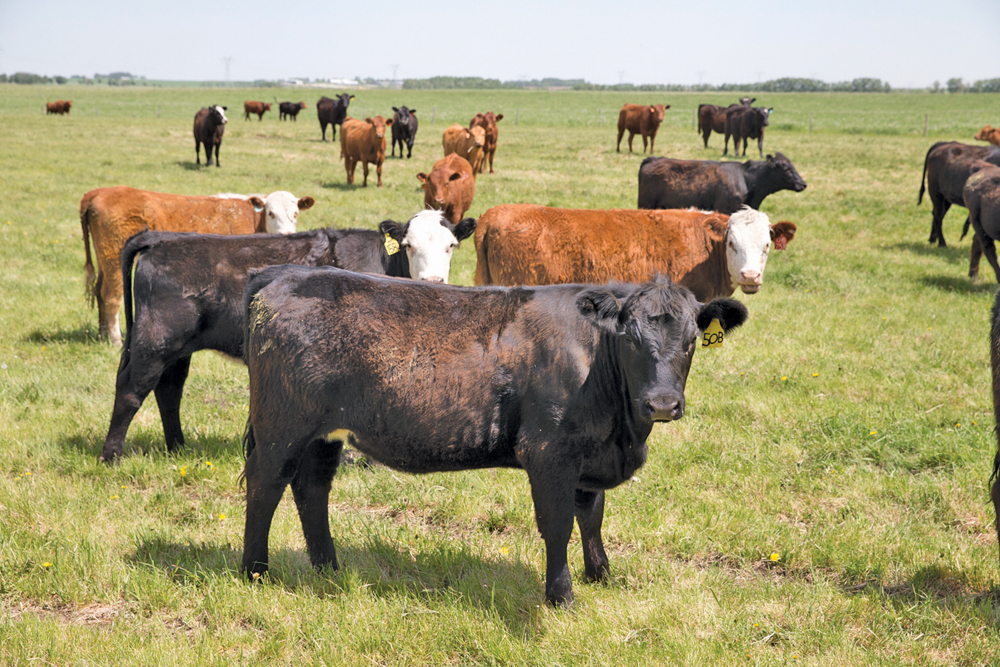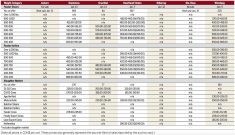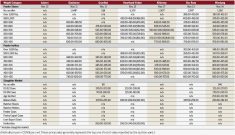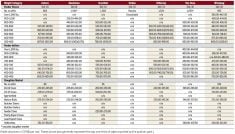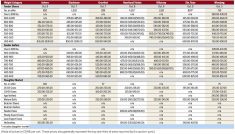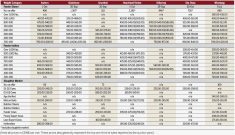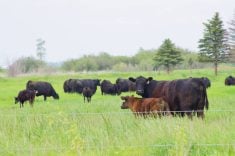McDonald’s Canada representatives may soon be visiting Manitoba cattle farms as the company moves forward with a pilot program designed to increase the amount of beef it sources from sustainable suppliers.
“This verification program is open to anyone across Canada who wants to participate. We have had some interest from Manitoba already. One Manitoba producer has their verification scheduled and there are four or five others who have expressed interest,” said Jeff Fitzpatrick-Stilwell, senior manager of sustainability at McDonald’s Canada and member of the CRSB.

Program verifiers were in Alberta last week meeting with some of the 100 Alberta ranchers who have expressed interest in participating in the program. So far, 19 of these have completed the process.
McDonald’s has partnered with the Canadian Roundtable for Sustainable Beef (CRSB) to initiate the pilot project, aimed at establishing an independent verification process in partnership with multiple stakeholders.
The pilot project began verifying cattle operations in May of 2015 and will carry forward until March of 2016, when the company has said it plans to start purchasing at least some of its beef from suppliers verified as sustainable operators.
The process involves evaluating operations with regionally specific indicators that have been developed in line with the Global Roundtable for Sustainable Beef (GRSB) principles, including the areas of animal health and welfare, management of prairie grasslands, natural resources, conservation, efficiency and innovation.
Read Also

Canadian Cattle Association names Brocklebank CEO
Andrea Brocklebank will take over as chief executive officer of the Canadian Cattle Association effective March 1.
“This is a verification, not a certification. Verification really gives the producer the ability to tell their story,” said Fitzpatrick-Stilwell. “We are really focused on outcomes and how producers are achieving the outcomes they are.”
“We’re committed to being more progressive around our social purpose and what matters most to consumers. We’ve made great strides, charting a new course for the entire global beef industry and with the help of our partners, we’re changing the way we source and serve food in our restaurants around the world,” said Steve Easterbrook, president and CEO, McDonald’s Corporation in a statement.
Producers participating in the verification process must first express interest, speak with a consultant, perform a self-evaluation and finally, schedule an on-farm verification where a certified verifier will visit the operation and review all of the indicators.
“We are not developing a McDonald’s standard for sustainable beef, we are going to use the pilot to make global decisions on how much sustainable beef is likely possible for us to purchase in a certain time frame,“ said Fitzpatrick-Stilwell. “This project will also be used as a learning opportunity for the CRSB.”
Information gathered throughout the verification process will be transitioned to the CRSB to aid in the process of moving towards implementing a program for sustainable beef verification across Canada.
“The more producers we have taking part in this project, the more lessons we will learn and the wider range of operations we can verify, from 40 head to 4,000 head, will really set the CRSB up for success.”
The project is looking for cow-calf operations with calves born on or after January 1, 2013 and/or backgrounder operations that supply cattle to feedlots, as well as feedlots that deliver fed cattle for harvest during 2015, prior to March 2016.
“No one will be excluded from the project. The only real limitation is the time. The on-site third-party verification process is taking about four to six hours so we are limited on how quickly we can move through these operations,” said Fitzpatrick-Stilwell.

Producers who participate in the project will receive the on-farm verification evaluation free of charge and will be provided with a report containing an unbiased, professional view of their operation. The report will also benchmark their performance to that of their peers.
The company has developed a set of 40 ‘indicators’ to assess sustainability, creating a scoring system to grade ranches, feedlots and others in the beef value chain. An American verification company is overseeing the process.
“We didn’t know what to expect, as far as the reception we were going to receive from the producer community, as we aren’t paying producers to go through the verification. But the response has been in excess of our expectations,” said Fitzpatrick-Stilwell.
Fitzpatrick-Stilwell says that Canada was selected to host the pilot project over other countries because of its existing leadership in the areas of sustainability, development of information exchange systems and McDonald’s Canada’s commitment to sourcing only Canadian beef.
“Canada was selected for this program because McDonald’s sources 100 per cent of our beef from Canadian producers and we have an ironclad commitment to them,” said Fitzpatrick-Stilwell. “Also, in Canada we only source from two processing plants, the Cargill facility in High River and JBS facility in Brooks. This project is not only looking at what our producers are doing but evaluates all aspects of this supply chain.”
Members of McDonald’s global leadership as well as Cargill and CRSB members took part in a few ranch tours in Alberta last week to get a first-hand look at the project’s progress.
“Having the global leadership take part in these ranch tours was really an opportunity for us to demonstrate to them on the ground what is happening with the pilot,” said Fitzpatrick-Stilwell. “This gave them a chance to see everything and talk with the producers to see what they’ve got out of the verification process, what was useful to them and what they were able to learn from it.”
Phase 2 of the verification process will begin this fall where information will be transitioned to the CRSB and conclusions will be drawn on how this data can be utilized to move forward in implementing a program for sustainable beef verification across Canada.
For more information or to express interest in participating visit, www.vsbpilot.ca.




